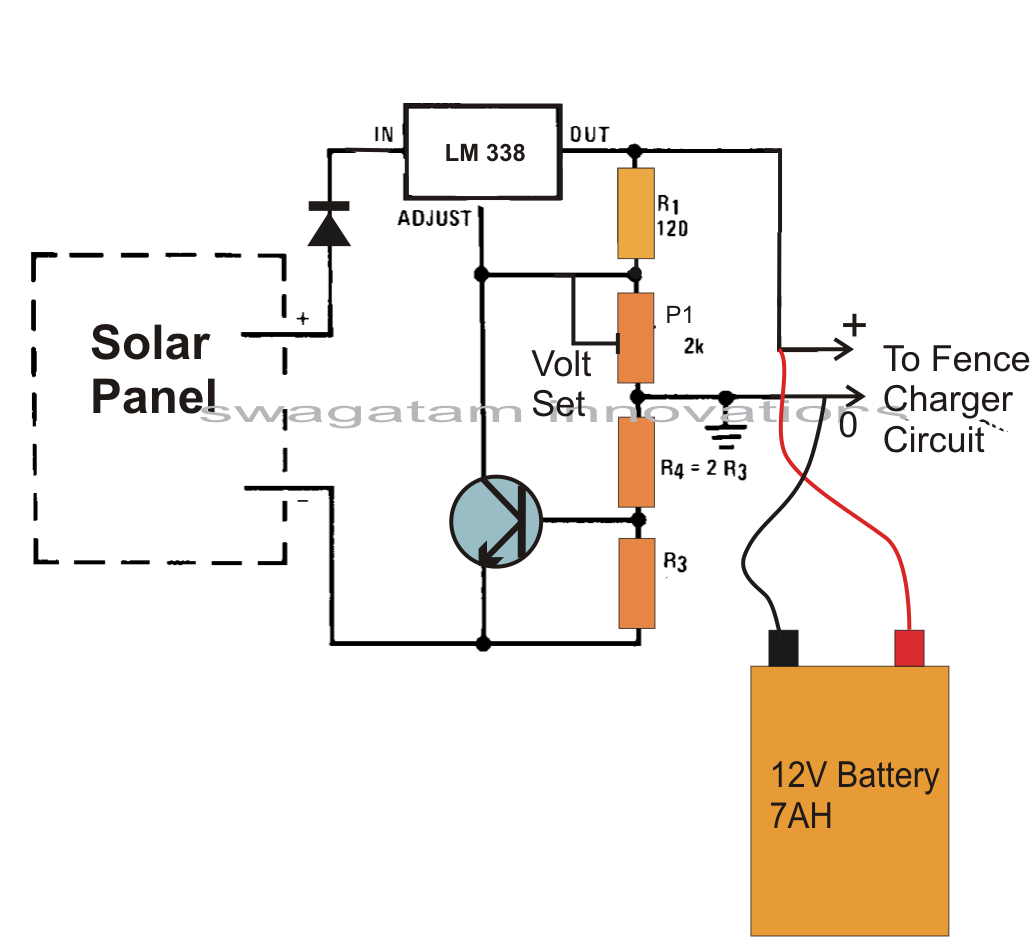
When battery voltage drops below 11 volts it beeps and turns off. This model has a low-voltage disconnect feature which is a big help. You can get them for cheap at any truckstop or discount store now. It takes in 12 volts DC from the battery and produces 110 volts AC that I can plug my sewing machine, laptop, etc into. This method works fine when camping and you can lay around watching to see how your battery is doing, or if your panels can't keep up with demand so you don't have to worry about overcharging. You'll get to know your panel, battery, and loads, and maybe you'll disconnect at a lower voltage, like 13.5 volts. If your battery voltage gets to 14 volts or if you hear a bubbling sound when you put your ear to your battery it means you're overcharging your battery. When current flows the voltage drops due to internal resistance in the panel. The panel output voltage rises to 17 volts or so when it's not connected to a load. If the voltage suddenly jumps to 17volts I suspect the jumper cables that carry the solar panel current to the battery have gotten disconnected. I then sniff to see if there's a burning smell, which means I need to pull over quick, open the hood, and put out an electrical fire. If the voltage goes to zero I know something has gotten disconnected or shorted out. I watch the voltmeter to see how things are going. Read more of that Haywire Mechanic Story or click on "step two" to read more battery/solar tricks. I'm driving south so I just set up the panel and drove into the sun, peeking over the panel. My alternater fell off the engine and the belt broke. Here I am running my truck's electrical system off a solar panel wedged in the windshield. If you want to use more power you'll want to get a bigger, higher voltage panel than that. These you can just hook to your battery and forget. They don't go over 13.5 or 14 volts and don't ever produce enough current to damage the battery. Some solar panels are made just for the purpose of maintaining batteries in vehicles that are parked a long time. If you happen to have a big panel and a little battery, there are tricks further along in this instructable. Consult the battery manufacturer's data to see how many amps it can handle, both while charging and discharging. Your battery can be damaged if you charge it too fast, so don't get a panel that's too big for your battery. Disconnect your solar panel to keep it from overcharging your battery. When it gets near 14 volts your battery is charged. Connect the panel to your battery and watch the voltage rise.


Solar panel car battery charger how to#
Here's how to charge your lead-acid car battery with a solar panel.


 0 kommentar(er)
0 kommentar(er)
